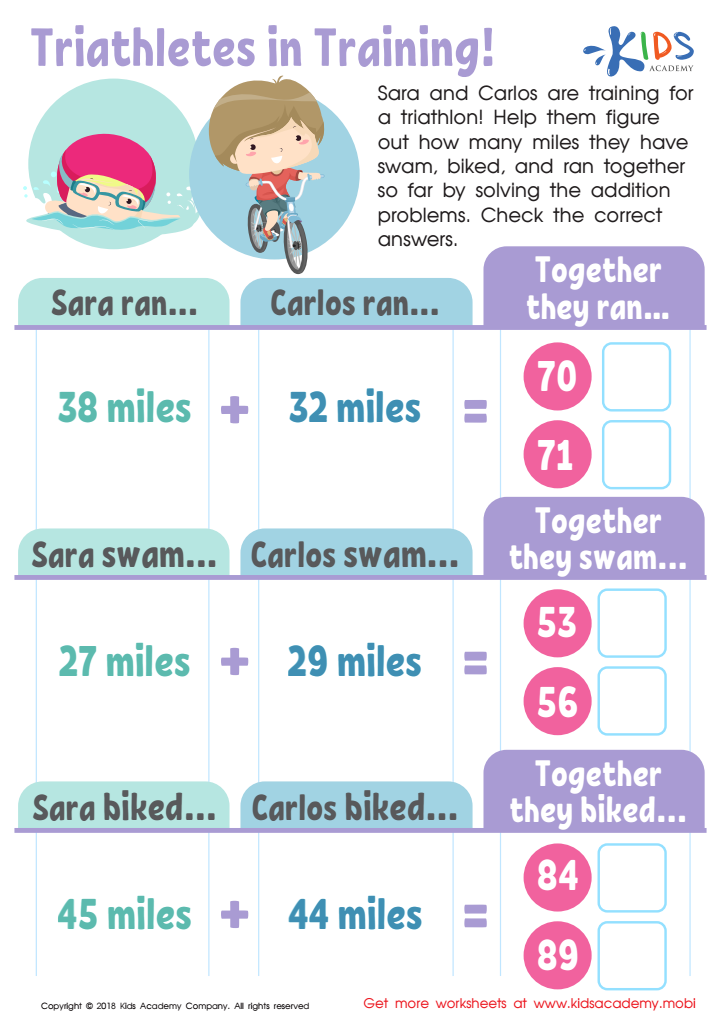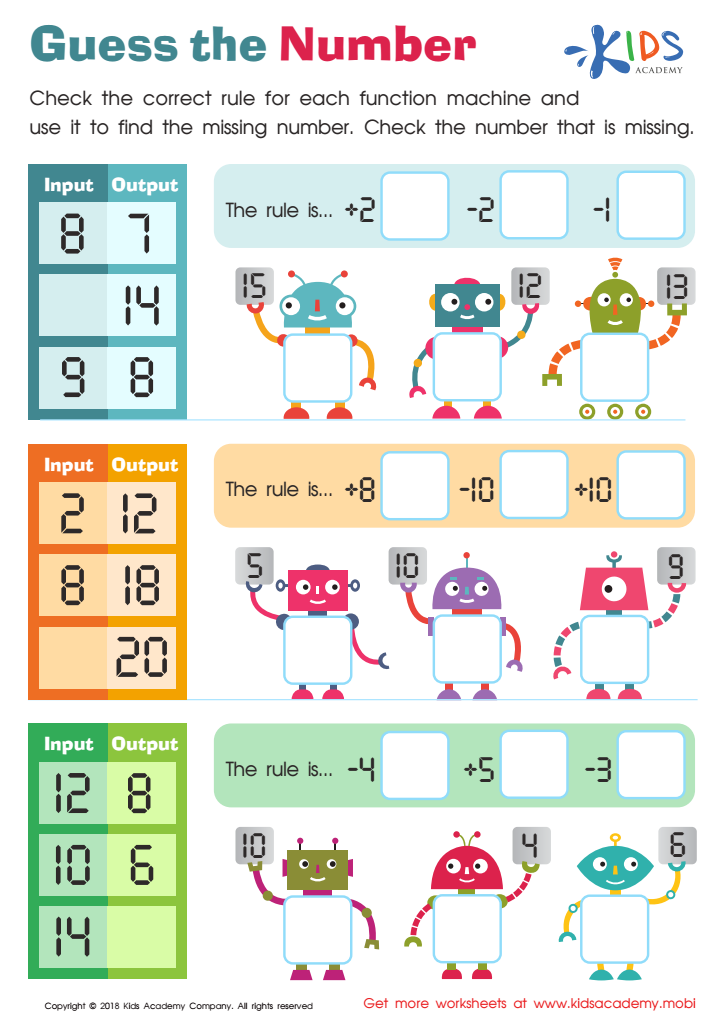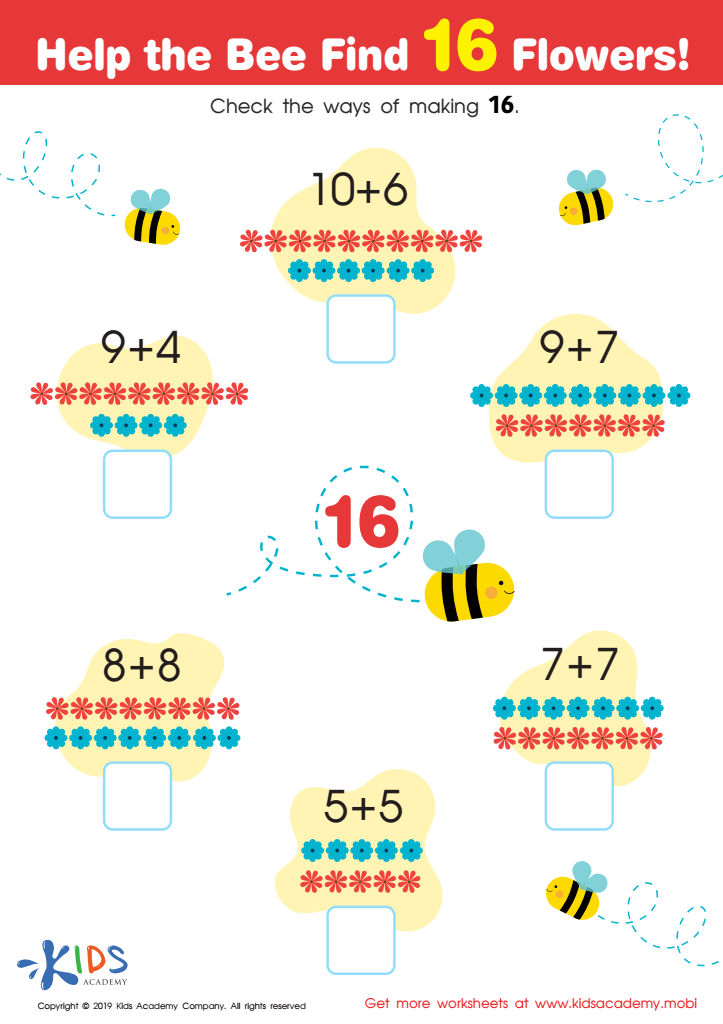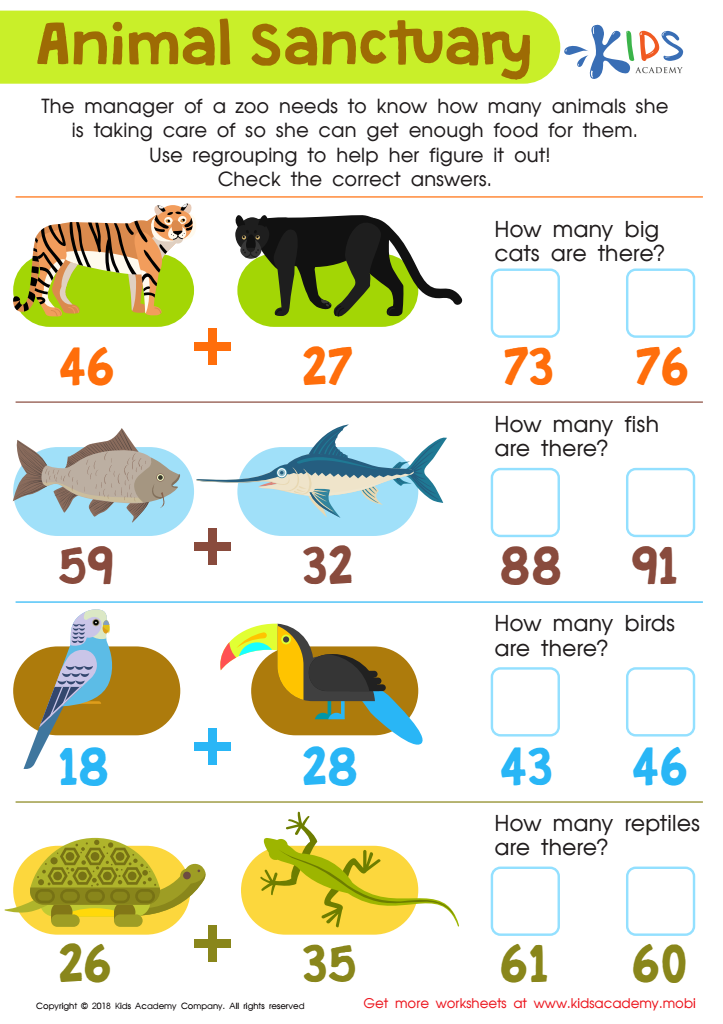Logical Reasoning Normal Addition & Subtraction Worksheets for Ages 4-8
7 filtered results
-
From - To
Discover our engaging Logical Reasoning Worksheets designed for children aged 4-8, focusing on normal addition and subtraction. These worksheets not only reinforce basic math skills but also enhance critical thinking through logical puzzles and fun scenarios. Children will learn to apply math concepts in a variety of contexts, fostering a deeper understanding of addition and subtraction. Each worksheet is thoughtfully crafted to captivate young learners while building their confidence in problem-solving. Perfect for classroom use or home study, our resources offer a comprehensive approach to math education, ensuring that learning is both effective and enjoyable. Start your child's learning journey today!


Enrichment -2 Step Word Problems Worksheet


Triathletes in Training Worksheet


Guess the Number Worksheet


Word Problems: Assessment 2 Worksheet


Addition and Subtraction: Word Problems Worksheet


Help the Bee Find 16 Flowers Worksheet


Animal Sanctuary Worksheet
Logical reasoning and normal addition and subtraction are fundamental skills for children aged 4 to 8 that significantly impact their cognitive development and overall academic success. At this age, children are developing critical thinking abilities, and engaging with logical reasoning helps them to analyze situations, make connections, and solve problems creatively. Introducing logical reasoning early on enhances their ability to think independently and boosts their confidence in making decisions.
Incorporating addition and subtraction into daily activities promotes numerical fluency, allowing children to grasp foundational math concepts. Early mastery of these skills paves the way for more complex mathematical operations in the future. As they learn to add and subtract, children also develop pattern recognition, which is crucial for understanding math and science concepts down the line.
Moreover, these skills foster perseverance and resilience in the face of challenges. When children encounter difficulty in solving problems, reasoning through them encourages a growth mindset. Parents and teachers play a vital role in nurturing these abilities through engaging activities, games, and discussions, ensuring a fun and productive learning experience. By supporting logical reasoning and basic arithmetic, adults contribute to a well-rounded education that equips children for lifelong learning and adaptability in an increasingly complex world.
 Assign to My Students
Assign to My Students




















